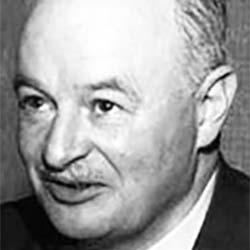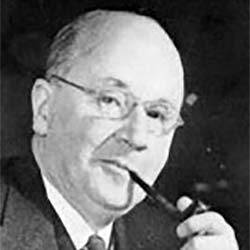Who We Are
History

»The world was sick, and the ills from which it was suffering were mainly due to the perversion of man, his inability to live at peace with himself« – George Brock Chisholm It was the first Director-General of the World Health Organization (WHO) who suggested that the World Federation of Mental Health (WFMH) be created. George Brock Chisholm, a Canadian psychiatrist, envisaged the WFMH as an international, nongovernmental body to provide a link to 'grassroots' mental health organizations and United Nations agencies. A radical thinker, Chisholm's view that "health is a state of complete physical, mental and social wellbeing and not merely the absence of disease or infirmity" provided early direction for both the WHO and the WFMH.
Chisholm's close friend, John "Jack" Rawlings Rees, a British military psychiatrist and a founder of the renowned Tavistock Clinic, accepted the challenge. The original purpose of the ICMH was mental hospital reform. Clifford Beers, a former psychiatric patient, founded the National Committee for Mental Hygiene in 1910 and the ICMH in 1919. In the aftermath of WWII, the new ICMH board recognized the need for advocacy in mental health, beyond that of raising standards of care for the mentally ill. In 1947, the ICMH agreed to change their name to the WFMH and accept as a new purpose to promote among all peoples and nations the highest possible level of mental health in its broadest biological, medical, educational, and social aspects.
The lead architects of this vision were Rees and Chisholm, together with eminent psychiatrists George Stevenson, Clarence Hincks, Arthur Ruggles and Harry Stack Sullivan, and noted anthropologist Margaret Mead. Dr. Jack ReesThe Resolution to found WFMH began with a meeting in the British Ministry of Health building during the London Congress on the night of 18 August and completed on the night of 19 August 1948.

Dr. Jack Rees announced the resolution at a plenary session of the Congress the following day and was ratified by the official Congress delegates on 21 August. The Federation began with members, 'not of individuals or countries, but of societies' from 46 countries. Today, with members and contacts in over 90 countries, the founding principles of the WFMH still hold true and are reflected in current WFMH activities including World Mental Health Day, the Biannual World Congresses, WFMH Collaborating Centers and ongoing initiatives to improve awareness and remove prejudice about mental disorders.